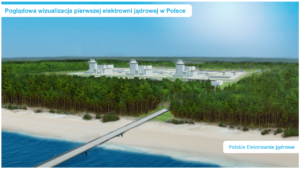The heating season is approaching and Gazprom has stepped up its efforts to limit gas supplies. Europeans are seeking more contracts, but only joint purchases of gas will save them from a fratricidal struggle for fuel, which Vladimir Putin is counting on, writes Wojciech Jakóbik, editor-in-chief at BiznesAlert.pl.
The race for gas before the winter may cause a civil war
Some EU countries are well prepared for the winter, better than the original forecasts. Poland’s storages are full, holding 3 billion cubic meters of gas with demand expected to reach 18 bcm this year. Germany is expected to fill its gas storage facilities, able to hold 20 bcm, at 90 percent by the end of September, a month before the planned deadline, while its usual 100 bcm yearly consumption may drop to as low as 80 bcm. The European Union as a whole has filled 80 percent of its gas storage, according to the European Commission’s plan to be implemented by the end of September. As usual, however, the situation varies from country to country. As at the end of August, the pro-Russian Austria filled its gas storage facilities, whose capacity is 2.9 bcm, at only 66 percent. The country uses 9 bcm of natural gas annually, and its largest gas storage facility in Haidach was until recently under the control of Russia’s Gazprom. The gas storage level in the pro-Russian Hungary reached only 60 percent of capacity despite Budapest’s advances towards Gazprom, which we’ve been witnessing for the past month. Bulgaria covered only 60 percent of the storage capacity, and therefore has declared that it may need a new agreement with the Russians. The problem is compounded by the fact that Ukraine, integrated with Europe as part of the energy community, has filled only 27 percent of the capacity of its storage facilities, which can hold 31 billion cubic meters. Kyiv uses about 40 billion cubic meters a year. On top of that, this winter the country may need emergency supplies from Europe. Meanwhile, Gazprom continues to limit gas supplies in accordance with the policy pursued since the summer of 2021. The company announced a technical break for Nord Stream 1 from August 31 to September 2. It also turned off the gas tap for France’s Engie under the pretext of a dispute over payments, for which it may have used the ruble ultimatum it had previously used against Poland and Bulgaria in May 2022.
Bulgaria received one billion cubic meters per year from Azerbaijan from a pool negotiated by the European Commission as part of an initiative taken together with the US in the autumn of 2021, when the energy crisis was beginning. A similar solution may be necessary in the future. The price of gas on the European exchange exceeded EUR 300 per megawatt-hour and although it dropped after the good news about storage facilities being filled, it may climb higher as Gazprom will continue to escalate, in a move probably designed to de-escalate Western support for Ukraine, about which I wrote more in another piece. European companies will compete for gas contracts outside Russia. This trend is evident in the debate about filling the Baltic pipeline from Norway to Poland, which the German media write about as a failure, because it has not yet been contracted to the brim. However, the Germans’ attempts to secure new contracts in Norway have so far failed, as have the talks on gas from Qatar or the currently unattainable Canada.
Vladimir Putin is probably counting on a fratricidal gas fight in Europe before the heating season, and for this he is turning up the panic. „Russia sees the panic in European countries this week and wants to maximize it, hoping to cause chaos. France should respond by preparing a stronger energy policy for the winter and strengthening EU solidarity,” said professor Jean-Michel Glachant, head of the Florence School of Regulation when commenting for BiznesAlert.pl on Gazprom stopping its supply to France’s Engie, which used to be the financial partner of the contentious Nord Stream 2 pipeline. This thesis applies to the whole of the European Union.
Poland’s idea to the rescue
European solidarity involves sharing gas supplies to protect vulnerable customers like schools, hospitals, etc., even at the expense of industry, which Poland fought for in the framework of the revision of the regulation on security of supply (SOS) in 2017. The European Commission also opened up to a Polish idea from 2014, i.e. joint gas purchases, but so far using it is voluntary. The threat of a civil war over gas means that member states should go for the Polish idea to avoid fighting for the same contracts, and instead rely on the EC distributing the gas. Perhaps such a solution would reconcile Poland and Germany in the race for gas from Norway. It is no coincidence that Brussels talked about supplies in Qatar, Egypt and other countries that have gas deposits. Joint purchases of gas, combined with another idea to be discussed in the European Union – the introduction of a maximum price for gas and energy in order to offset the market exhaustion caused by Gazprom, should ensure that we enter the heating season prepared in the best possible way and do not succumb to Russia’s gas blackmail, and above all avoid a civil war over gas, which would be the success of the Kremlin’s divide et impera policy. Instead, new sanctions should be imposed on Russians, including Gazprom. Avoiding them has not saved Europe from Russia slashing its gas supply. Gazprom itself gives a pretext for taking action.









